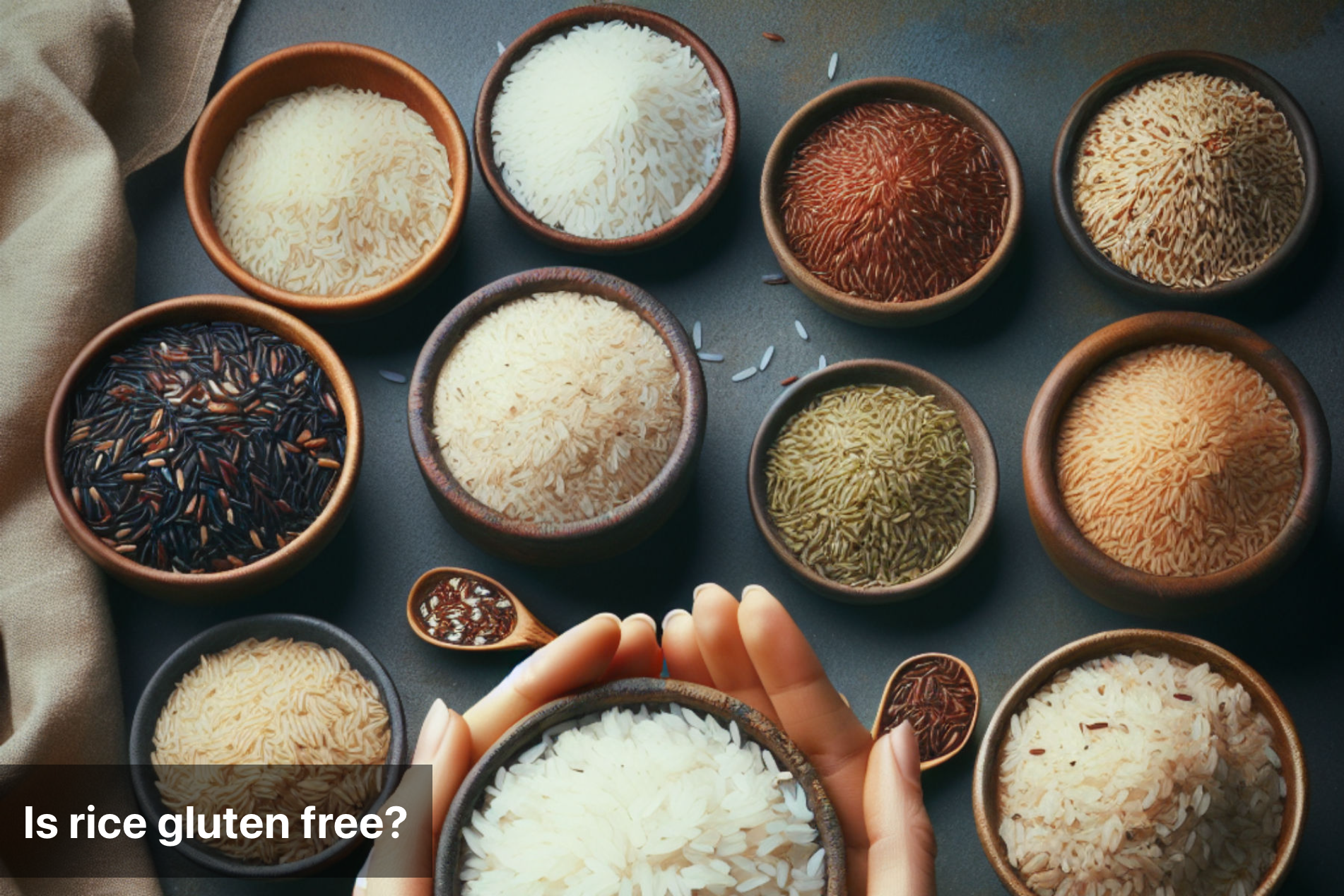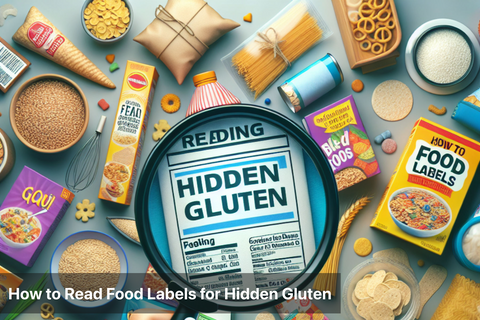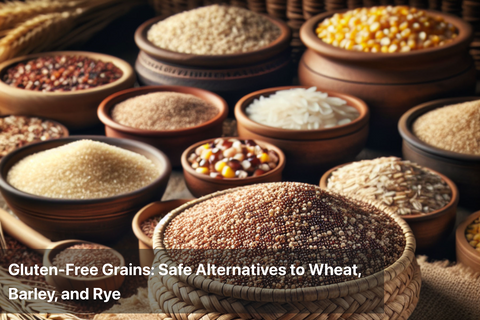
Is rice gluten free?
Rice is a staple food consumed worldwide, but there is confusion surrounding its gluten content. For those wondering, "Does rice contain gluten?" the answer is no. Rice is naturally gluten free, making it a safe option for individuals avoiding gluten.
Understanding the distinction is crucial for those with gluten sensitivities. By recognizing that rice is gluten free, individuals can confidently incorporate it into their diets without the risk of adverse reactions. However, it's essential to be cautious about cross-contamination in processing facilities or during cooking.
Despite misconceptions, rice stands out as a versatile and gluten-free grain, offering various options like white rice, brown rice, and wild rice. Embracing rice as a gluten-free alternative can provide needed dietary diversity for those with gluten restrictions.
Debunking myths about rice and gluten highlights the importance of accurate information for individuals managing gluten sensitivities or celiac disease. By understanding that rice is inherently gluten free, individuals can make informed dietary choices that suit their health needs.

Does Rice Contain Gluten?
|
Nutrient |
White Rice (per 100g) |
Brown Rice (per 100g) |
Gluten Content |
|---|---|---|---|
|
Calories |
130 kcal |
111 kcal |
None (Gluten-Free) |
|
Carbohydrates |
28.2 g |
23 g |
None (Gluten-Free) |
|
Protein |
2.7 g |
2.6 g |
None (Gluten-Free) |
|
Fat |
0.3 g |
0.9 g |
None (Gluten-Free) |
|
Fiber |
0.4 g |
1.8 g |
None (Gluten-Free) |
|
Vitamin B1 (Thiamine) |
0.07 mg |
0.17 mg |
None (Gluten-Free) |
|
Vitamin B3 (Niacin) |
1.6 mg |
4.3 mg |
None (Gluten-Free) |
|
Magnesium |
12 mg |
43 mg |
None (Gluten-Free) |
|
Phosphorus |
43 mg |
83 mg |
None (Gluten-Free) |
|
Potassium |
35 mg |
86 mg |
None (Gluten-Free) |
|
Iron |
0.2 mg |
0.4 mg |
None (Gluten-Free) |
|
Zinc |
0.6 mg |
1.1 mg |
None (Gluten-Free) |
Gluten Free Rice Options
-
When it comes to gluten-free options, rice reigns as a versatile and naturally gluten-free grain that can be enjoyed in various forms.
-
There are several popular varieties of rice that are considered gluten-free, making them safe choices for individuals with gluten sensitivities or celiac disease.
-
White rice, brown rice, wild rice, basmati rice, and jasmine rice are among the commonly consumed gluten-free rice options that offer different textures and flavors to suit various preferences.
-
Look for specific labeling practices such as "gluten-free" or certifications like the Certified Gluten-Free label when selecting rice products to ensure they meet gluten-free standards.
-
These labels provide assurance that the rice has undergone testing and meets the requirements for being gluten-free, giving consumers confidence in their choice.
-
Incorporating gluten-free rice into a balanced diet can be simple and delicious. Consider using rice as a base for stir-fries, pairing it with protein sources and vegetables, or using it in salads or stuffed pepper recipes.
-
By exploring different recipes and culinary techniques, you can enjoy the benefits of gluten-free rice while adding variety and nutrition to your meals.

Gluten Concerns: Is Rice a Safe Option?
After delving into the topic of gluten in rice, it becomes evident that rice is predominantly considered gluten free. Despite common misconceptions, rice, whether white, brown, or wild, is a safe option for individuals with gluten sensitivities or celiac disease. The purity of rice makes it a versatile and essential component of gluten-free diets.
It is crucial for individuals questioning, "Does rice contain gluten?" to understand that natural rice varieties do not inherently contain gluten. Therefore, rice can be a comforting choice for those seeking gluten-free alternatives. However, consumers should remain vigilant about potential cross-contamination in rice products due to processing methods or shared equipment.
It is safe to affirm that rice is a gluten-free grain, opening up a world of culinary possibilities for individuals with specific dietary needs. Although rice is generally considered safe for gluten-free diets, it is always advisable to conduct thorough research and, if necessary, consult with healthcare professionals for personalized guidance. Embracing rice in its various forms can foster a delicious and inclusive approach to gluten-free living.
FAQs
-
Is rice gluten free?
Yes, rice is naturally gluten-free and safe for those with gluten sensitivity.
-
What types of rice are gluten free?
All varieties of rice, including white rice, brown rice, jasmine rice, and basmati rice, are naturally gluten-free.
-
Is rice flour gluten free?
Rice flour is gluten-free and commonly used as a gluten-free alternative in cooking and baking.
-
Can rice be contaminated with gluten?
While rice is inherently gluten-free, cross-contamination can occur during processing or storage. It is recommended to purchase rice from reputable sources that certify their products as gluten-free.
-
Are rice-based products gluten free?
Rice-based products, such as rice cakes, rice noodles, and rice crackers, are often gluten-free; however, it's essential to check the labels for any potential gluten-containing ingredients.
This Blog post is an initiative by Lo! Foods, to provide accurate and Nutritionist / Doctor approved information related to Health. Lo! Foods is India's leading brand for Everyday Functional Foods. Foods designed for specific Health conditions or Needs. Lo! Foods also runs India's largest range of Low Carb Healthy Cloud Kitchens, under the brand names of Lo!, ProteinChef, ATH (All Things Healthy) and DiabeSmart.















Leave a comment
Your email address will not be published.